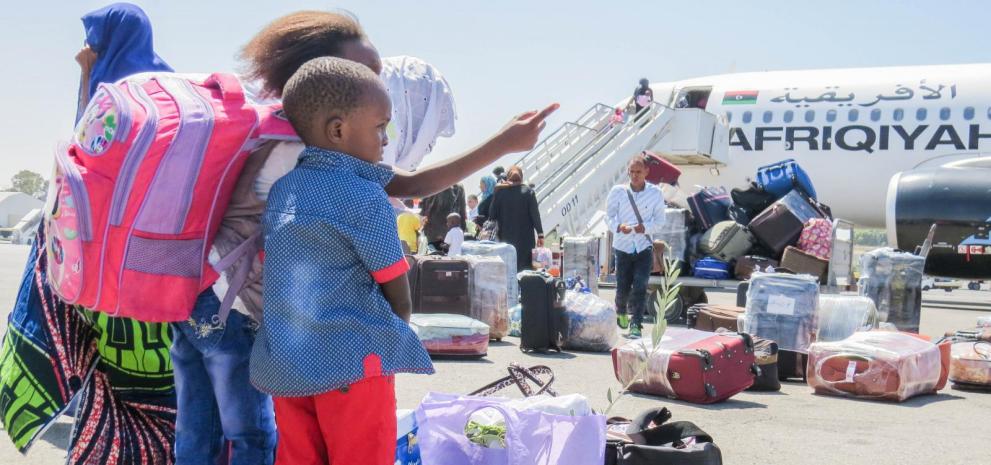
The European Commission today has approved 3 new migration-related programmes in Northern Africa totalling more than €90 million.
This follows last week's European Council's conclusions in which Leaders committed to stepping up support along the Central Mediterranean route. The new programmes under the EU Emergency Trust Fund for Africa will increase EU assistance to refugees and vulnerable migrants and improve partner countries' ability to better manage their borders.
High Representative/Vice-President Federica Mogherini commented: "Today's new programmes will step up our work to managing migration flows in a humane and sustainable way, by saving and protecting lives of refugees and migrants and providing them with assistance and by fighting against traffickers and smugglers. It is our integrated approach that combines our action at sea, our work together with partner countries along the migratory routes, including inside Libya, and in the Sahel. This work has already brought results and will bring more if member states will be consistent with the commitments they have been taking since the establishment of the Trust Fund at the Valletta summit, in 2015."
Commissioner for European Neighbourhood and Enlargement Negotiations, Johannes Hahn, added: "Partnership is key to respond to the challenges posed by irregular migration. By working together with our southern neighbours we can tackle this challenge and bring benefits to the partner countries, the migrants and Europe. Today's new programmes will provide support to authorities to improve border management but at the same time will also ensure protection and emergency assistance for vulnerable migrants."
The newly adopted €90.5 million in assistance will fund 3 programmes, which will complement ongoing EU efforts in the region:
- Through the programme on border Management for the Maghreb region worth €55 million, the EU will support efforts of national institutions in Morocco and Tunisia to save lives at sea, improve maritime border management and fight against smugglers operating in the region. This programme, implemented by the Italian Ministry of Interior, together with the International Centre for Migration Policy Development (ICMPD), will focus on capacity building and providing and maintaining equipment;
- Building on existing programmes, the EU will reinforce its support to the protection of refugees and migrants in Libya at disembarkation points, in detention centres, in remote southern desert areas and urban settings. The “Integrated approach to protection and emergency assistance to vulnerable and stranded migrants in Libya” programme, worth €29 million, will be implemented together with the International Organisation for Migration (IOM) and the UN Refugee Agency (UNHCR). It will also promote initiatives to develop economic opportunities for migrants in the domestic labour market, together with the Libyan Ministry of Labour;
- With an additional €6.5 million, the EU will reinforce its assistance to vulnerable migrants, supporting the 2014 Moroccan National Strategy on migration. It will facilitate access to basic services for vulnerable migrants and improve local associations' and organisations' capacity to effectively deliver those services. Civil Society Organisations will implement this programme.
Background
The EU Emergency Trust Fund for Africa was established in 2015 to address the root causes of irregular migration and forced displacement. The budget allocated so far amounts to €3.43 billion from the EU, EU Member States and other donors. So far, 164 programmes across the 3 regions (North of Africa, Sahel/Lake Chad and Horn of Africa) have been approved for a total amount of around €3.06 billion.
With today's addition, €461 million from the North of Africa window were mobilised for 19 programmes responding to multiple needs across the region and beyond.
The programmes adopted follow the commitment of the European Council of 28 June 2018 to step up support along the Central Mediterranean route for coastal and Southern communities, humane reception conditions, cooperation with countries of origin and transit, and increase assistance to countries affected by increased flows along the Western Mediterranean, in particular Morocco. The EU continues to maintain its support to the activities conducted in Libya by the International Organisation for Migration and the UN Refugee Agency.
Details
- Publication date
- 6 July 2018
- Region and Country
- North of Africa
